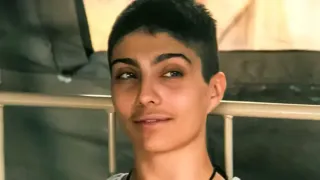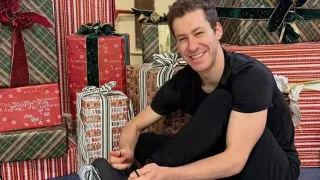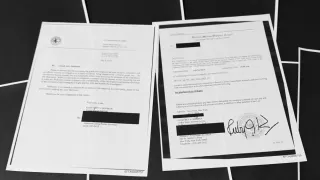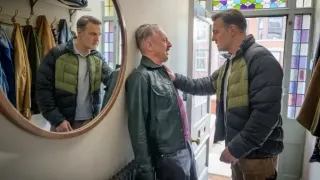June 3, 2020
Online Extra: Dining In: Black-Owned, Drag-Infused Meals to Go
Jim Provenzano READ TIME: 3 MIN.
Too pooped amid protests and a pandemic to prepare poultry? Bay Area Black-owned restaurants and Oasis' drag-hosted catered meals can nourish you through the revolution.
You can support Black-owned restaurants in San Francisco, Oakland and other cities by ordering delicious meals tonight, like Brown Sugar Kitchen, Eko Kichen in SoMa, Hazel Southern Bar & Kitchen in Civic Center, Two Jacks Seafood in the Haight, and Zzoul Cafe in the Tenderloin.
Check out Do The Bay's list with multiple links. As they state, "Supporting Black-owned businesses and restaurants is a great way to get involved in the movement."
The San Francisco Chronicle also shares links to multiple eateries in the Bay Area.
As Soleil Ho writes, "Over the weekend, a list of Los Angeles-based black-owned restaurants, created by Angeleno Kat Hong, began to circulate on social media. It was a response to the unrest erupting across the country over police violence and anti-black racism: amid these large-scale movements for equity, the project pitched a small-scale way to push forward with acts that we do three times a day.
"So I picked up the momentum and made a version for the Bay Area – out of a desire to highlight the work of folks who have made massive contributions, not only to Bay Area food culture, but to American food culture as a whole."
Ho's Google doc handily provides contact info for dozens of Bay Area restaurants that take to-go and/or delivery orders.
Dining in's a drag
If you miss both drag show and good food, you'll flip your wig for Oasis' new drinks and dining menu.
In partnership with local catering company Ladies who Lunch, the popular nightclub Oasis is offering a limited quantity of drag delivery for delectable dinner and drinks. Don't fret if you miss your chance for one of these sure to be entertaining deliveries. Stop by Oasis to pick up your dinner and drinks, and the staff will treat you to a socially-distanced surprise or two.
The few requirements include the request that food must be ordered with alcoholic drinks. Every order has to be picked up or delivered to someone over 21, and ID's will be checked.
Also, the dining experience is set for Friday, June 5, 4pm to 7pm only.
Cocktails take on themes of Oasis shows, including Peaches Christ and Heklina's Mommie Dearest parody, such as The Christina Colada (two types of rum, pineapple Juice and a splash of coconut); The Clean Up This Mess Mojito (fresh lime juice, Muddled Mint and rum); The Wire Hanger Margarita (fresh Lime Juice, Triple sec and tequila), and The Bring Me The Ax Cosmo (cranberry juice, vodka and fresh lime).
Dinners include Mommie's Bacon Wrapped Meatloaf with Creamy Mashed Potatoes and Garlicky Green Beans; Christina's A Jerk Chicken with Coconut Rice and Callaloo Greens; and the MGM Movie House Salad of Mixed Greens with Toybox Tomatoes, English Cucumber, Marinated Red Onions, Roasted Chickpeas and Aged Sherry Vinaigrette.
And to top it off, partial proceeds go to Black Lives Matter.
See the Facebook event page for details. Order your food, then tune in to Oasis TV for recorded full-length shows.
Tamale time
Who doesn't love a tamale? In Conjuction with their most Imperial Majesties Emperor William Bulkley, Empress Mimi Osa and the Imperial Council of San Francisco, their Tamale sale will benefit Covid-19 Relief. Order tamales to be safely delivered to your door in San Francisco or arrange for pick up. Net proceeds to benefit the San Francisco Night Ministry, which helps those in greatest need especially in this time of this current pandemic. Order online through June 9. Deliveries on Sundays through June 14.
Place your orders on their EventBrite page.
Bon appetit!
Visit the Oasis YouTube channel for shows.
Editor's note: If you liked this article, help out our freelancers and staff, and keep the B.A.R. going in these tough times. For info, visit our Indiegogo campaign. To donate, simply claim a perk!






